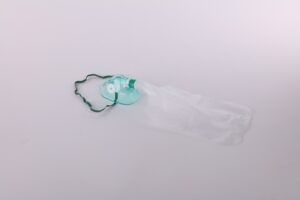
The laryngeal mask is an artificial airway and a special type of ventilation tube. It has the advantages of good tolerance, etc., and has been widely used in general anesthesia, especially short general anesthesia surgery, respiratory management, and emergency airway opening during the rescue.
Laryngeal mask indications
Patients under general anesthesia;
Emergency room and various departments for emergency resuscitation of patients;
Patients with difficult endotracheal intubation.
Laryngeal mask contraindications

Patients with a full stomach and not fasting are absolute contraindications to the use of first- and second-generation laryngeal masks. Because the laryngeal mask not only does not prevent aspiration of gastric contents, but also increases the possibility of aspiration of refluxed material into the respiratory tract.
Laryngeal masking is also an absolute contraindication to patients at risk of reflux, such as obesity, hiatal hernia, pregnancy, and patients with a history of reflux of gastric contents.
In patients with tracheal compression and tracheomalacia, a laryngeal mask cannot prevent airway obstruction caused by tracheal compression and tracheomalacia.
Patients with throat lesions, such as patients with abscesses, hematomas, edema, and tissue damage in the throat, should also be contraindicated when the lesions cause upper airway obstruction.

Patients with reduced pulmonary compliance or high pulmonary resistance usually require positive pressure ventilation of 2.5-3.0kPa (25.5-30.6cmH2O). At this time, air leakage around the laryngeal mask and the gas from positive pressure ventilation often enter the stomach, not only Positive pressure ventilation is difficult and can increase the incidence of regurgitation and aspiration.
Patients with difficult endotracheal intubation Although the laryngeal mask can be used in patients with unforeseen difficulty in intubation or in patients with intubation failure, the use of a laryngeal mask should be relatively contraindicated in patients with a history of difficult intubation or expected difficulty in intubation. That is, in such patients, the laryngeal mask cannot replace endotracheal intubation, and endotracheal intubation is the fundamental measure to ensure the safety of such patients.

Patients whose airway is not easily accessible or endotracheal intubation is difficult to complete, such as patients in prone and lateral recumbency, or when the anesthesiologist needs to be away from the operating table. In these cases, the anesthesiologist cannot immediately perform endotracheal intubation and other procedures if the mask is inappropriately positioned or dislodged, as well as vomiting and reflux.





